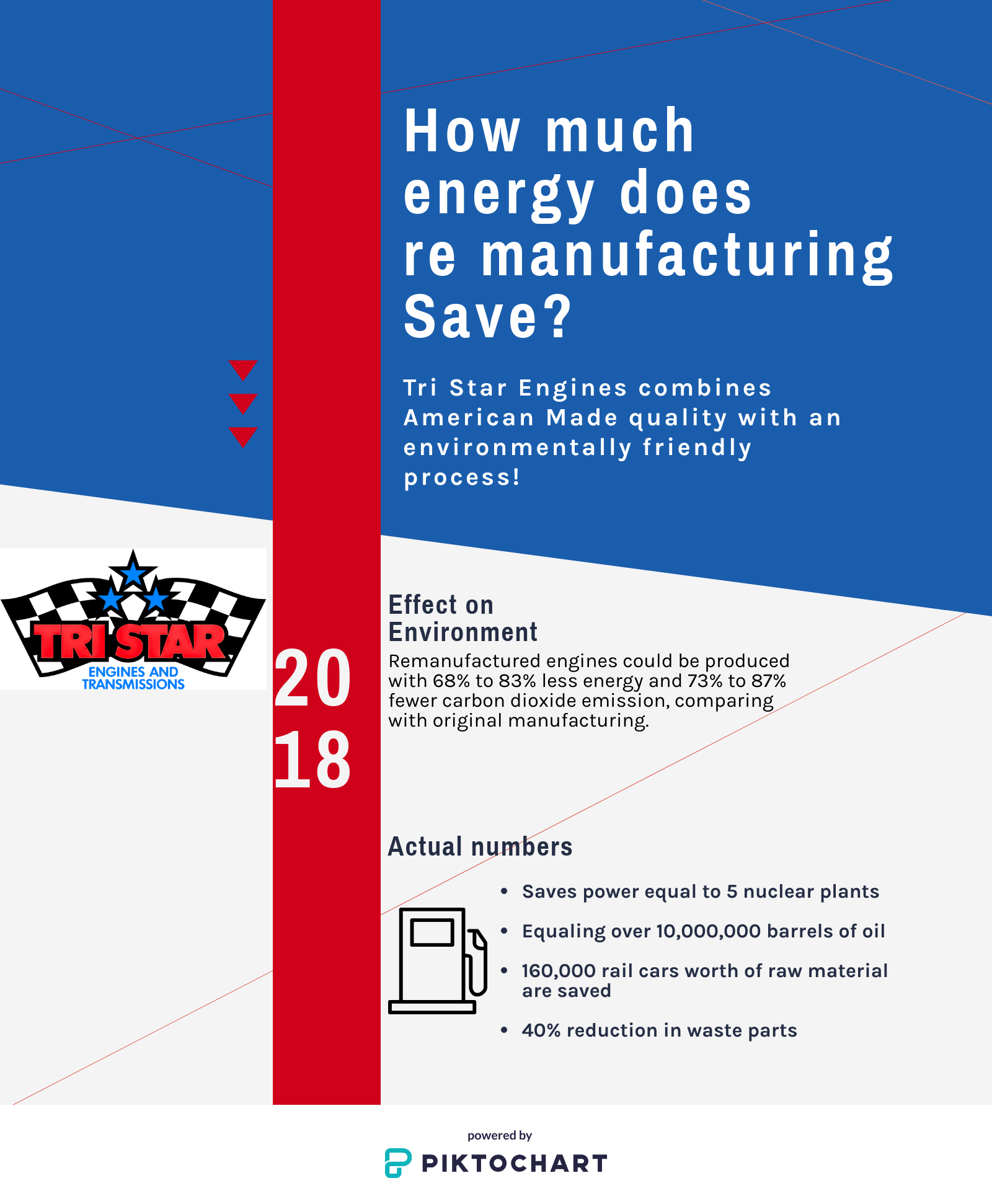Environmental Impact
We've talked about us, we've talked about you... We're both awesome and we know that, but did you know that our awesomeness also affects the rest of the world? We're talking about re-manufacturing of course! Not only do our remanufactured powertrain components provide updates and corrections for original equipment flaws, but by purchasing them you're also helping conserve our natural resources. Recycling is great, but remanufacturing is actually better! That's right - remanufacturing preserves the original castings without the need for time, money, energy and resources to convert the casting to a raw metal and into a new product.

By remanufacturing engines (and you, in turn, by purchasing them) we're creating a 'like new' (or better) product but using a fraction of the energy needed to create the original product! According to the Production Engine Remanufacturer's Association "remanufacturing recaptures the value-added product when it was first manufactured. In fact, a 1981 Massachusetts Institute of Technology study on the remanufacturing of automobile components indicated that approximately 85% of the engergy expended in the manufacture of the original product was preserved in the remanufactured product. This is why remanufacturing is considered the ultimate form of recycling."
"For all but the most simple durable goods, value added is by far the largest element of cost. Even in a product as simple as a beer bottle, the cost of the basic raw materials (sand, soda, and lime) is much less than 5 percent of the cost of a finished bottle. The rest is value added. For a product such as an automobile, the value of the raw materials that can be recovered by recycling is only in the order of 1.5 percent of the market value of the new car.
Value added is embodied in the product. Recycling destroys that value added, reducing a product to its elemental value - its recoverable raw material constituents. Further, recycling requires added labor, energy, and processing capital to recover the raw materials. When all of the cost of segregation, collection, processing, and refining are taken into account, recycling has significant societal cost. Society undertakes recycling only because, for all nondurable and many durable products, the societal cost of any other disposal alternative is even greater.
According to studies performed at the Fraunhofer Institute in Stuttgartt, Germany, energy savings by remanufacturing world-wide in a year equals the electricity generated by 5 nuclear power plants or 10,744,000 barrels of crude oil which corresponds to a fleet of 233 oil tankers. The Fraunhofer Institute also determined that raw materials saved by remanufacturing worldwide in a year would fill 155,000 railroad cars forming a train 1,100 miles long.
Because products that are remanufactured are kept out of the waste stream longer, landfill space is preserved and air pollution is reduced from products that would have had to be resmelted or otherwise reprocessed. A product can always be recycled. Extending product life through remanufacturing is the key to leveraging the earth's natural resources."
Find a large selection of remanufactured engines for sale, here at Tri Star Engines.
source: http://www.pera.org/faq




